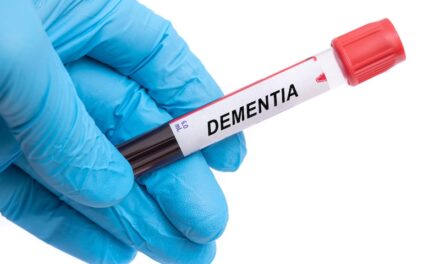The single-plex assay, for research use only, measures brain-derived phosphorylated tau 217 from plasma, serum, and dried blood spots without requiring cerebrospinal fluid collection.
Alamar Biosciences launched the NULISAqpcr BD-pTau217 Assay, a blood-based test designed to quantify brain-derived phosphorylated tau 217 (pTau217), a key biomarker in Alzheimer’s disease research and other tauopathies.
Built on the company’s NULISA platform, the research-use-only assay measures CNS-derived pTau217 directly from non-invasive sample types including plasma, serum, and dried blood spots, eliminating the need for cerebrospinal fluid collection or PET imaging.
“The NULISAqpcr BD-pTau217 Assay redefines what’s possible in CNS biomarker quantitation,” says Dr Yuling Luo, founder, chairman, and CEO of Alamar Biosciences, in a release. “By removing the noise from the peripheral sources of tau, researchers can now detect meaningful changes in the brain earlier and with higher precision.”
Clinical Performance Data
Early research results suggest the assay performs comparably to established plasma pTau217 tests while offering improved specificity for brain-derived tau protein. Jonathan Schott, MD, PhD, professor of neurology at University College London, evaluated the assay’s performance in clinical samples.
“The performance of Alamar’s brain-specific plasma pTau217 assays is excellent,” says Schott in a release. “For the detection of Alzheimer’s pathology with cognitive symptoms, our early results suggest that the single-plex format performs at least as well as established plasma ptau217 tests, but has a higher fold-change, and results in fewer samples being classified in the indeterminate range.”
The assay also shows potential for identifying asymptomatic individuals with elevated Alzheimer’s pathology who may be candidates for clinical trials of disease-modifying therapies, according to Schott.
Workflow and Throughput Capabilities
The BD-pTau217 assay is available as a single-plex NULISAqpcr assay or within the multiplex NULISAseq CNS Disease Panel 120. When paired with Alamar’s ARGO HT System, the automated workflow can process more than 220 samples per day.
The assay’s design targets CNS specificity by focusing on brain-derived tau protein while filtering out peripheral sources that could introduce variability in measurements. This approach aims to provide more precise detection of neurological changes associated with Alzheimer’s disease progression.
The NULISA BD-pTau217 assays are available for research use only and are not intended for diagnostic procedures.
Photo credit: Alamar Biosciences





